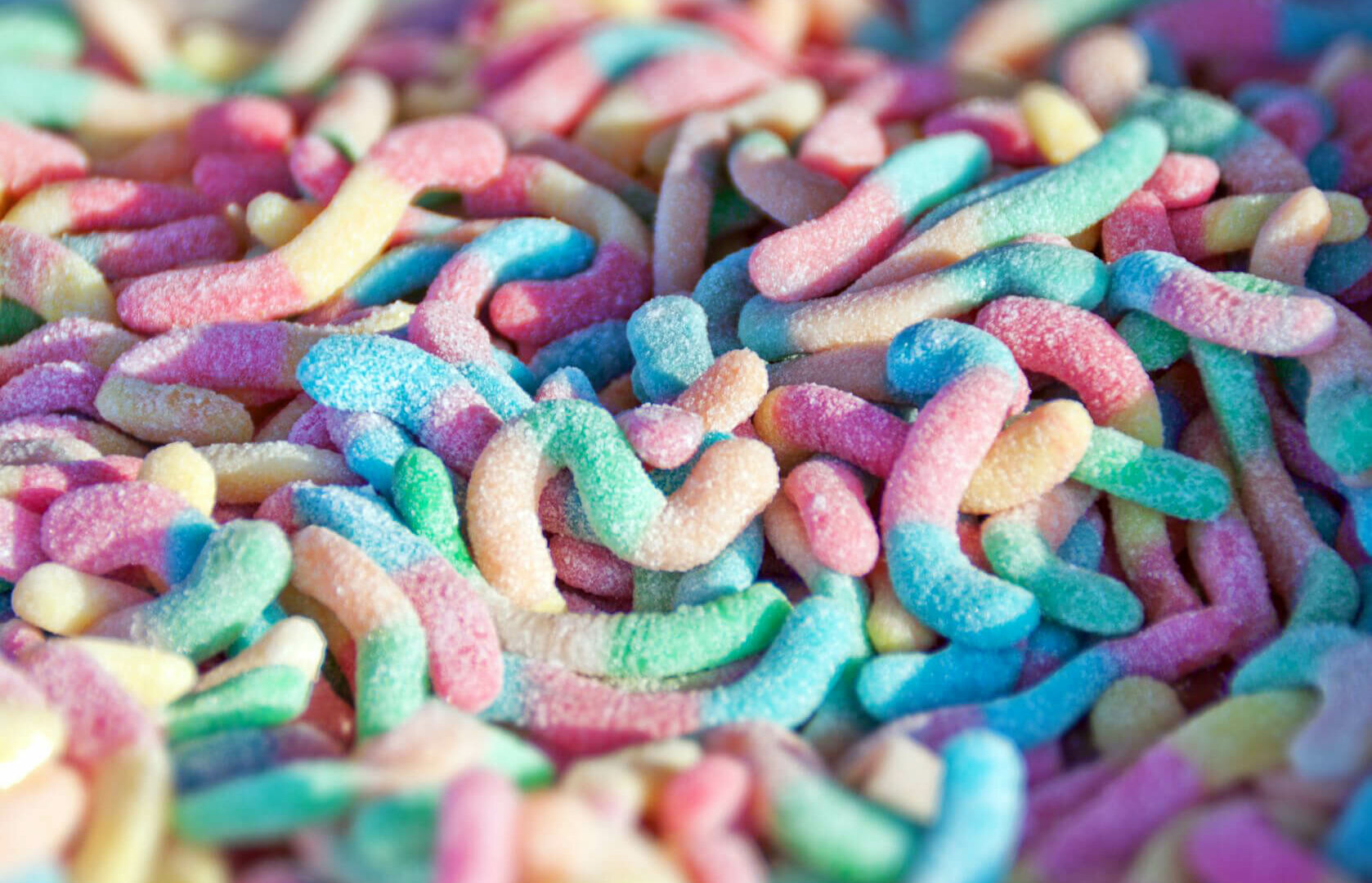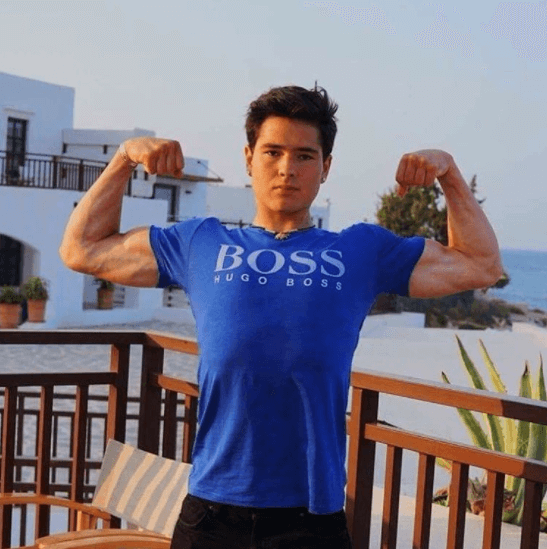If you look around the fitness community on Instagram and YouTube you will likely see people consuming Sour Patch Kids, Gummy Worms, or other types of sugary candies. The idea that intra-workout carbohydrates need to be consumed is not new. While Arnold might have put dextrose in his shaker bottle, we now see bodybuilders and powerlifters eating sugary candy during their workouts to fuel their intense training sessions. It seems like the logical thing to do: you consume simple carbohydrates during your workout to deliver quick energy that will allow you to maintain performance and intensity throughout the workout. But is there any science to support this that this works?
Glycogen 101
Glucose is your body’s preferred fuel source; it circulates in the blood stream and is used for energy by your cells. However, there is only so much glucose that your body wants circulating in the blood. Your body wants to have energy reserves for when it is needed and therefore, it will store glucose in the liver, but mainly in the muscle in the form of glycogen. On average the body stores around 500g of glycogen in the body. [1]
When your body wants break down glycogen into glucose, a process called glycogenolysis occurs; the breakdown of glycogen into glucose that your body can use for energy. During a session of resistance training, glycogen can be depleted by about approximately 36%; which will be dependant on the intensity, volume, and duration of the training session. [2] The theory behind eating sugar snacks during the workout is to consume a fast digesting carbohydrate that can quickly undergo glycolysis and to provide energy for the workout
What the Research Shows
Most of the literature on intra workout carbohydrate has been done on endurance athletes that train for long-periods of time. In a systematic review by Pochmuller et al. it was observed that the main benefits of consuming intra-workout carbohydrates are experienced when the exercise bout lasted for at least 90 minutes. [3] This is likely due to the fact that this is when glycogen depletion will start to significantly impact athletes and when the consumed carbohydrates are able to be digested and undergo glycolysis to provide the body with ATP.
A double blind, placebo-controlled study by Kulik et al. tested the effects of intra-workout carbohydrate on squats to exhaustion. [4] In this study, the subjects were made to do sets of 5 reps to exhaustion. The weight used was 85% of predetermined 1RM. The subjects received either 0.3g∙kg∙bodymass-1 of carbohydrates from Gatorade or a placebo prior to training and after each successfully completed set. There was no significant difference between groups in total sets, volume, work or rate of perceived exertion between the two groups. This study suggests that intra-workout carbohydrate may not benefit an athlete performing resistance training.
Glycogen Replenishment
Many consume carbohydrates during or directly after a training session to replenish glycogen levels immediately. The literature has shown that glycogen replenishment will happen within 24 hours regardless of when carbohydrates are consumed. [5] In a study by Parkin et al., trained cyclists cycled at 70% of VO2 max for 2 hours. [6] The athletes did this routine twice. On one occasion, they were given 5 high glycemic index (GI) meals in a 24 hour period starting upon exercise completion. On the second occasion, the same 5 high GI meals were fed except starting 2 hours after the training session. Muscle biopsies taken at 8 and 24 hours revealed that there was no difference in muscle glycogen or glucose-6-phosphate in either trial. This study suggests that consuming high GI carbs during or immediately post workout may not lead to faster glycogen replenishment.
Who benefits from Intra workout carbs?
If you are consuming enough carbs throughout the day to replenish glycogen levels, then you will likely not benefit from consuming carbohydrates during your workout. So who can benefit form consuming carbs during a workout?
If you are someone who must train upon waking and cannot perform optimally on a full stomach, you may experience a boost in performance by drinking a fast digesting carbohydrate + BCAA shake throughout your workout.
You may also benefit from intra-workout carbohydrate consumption if your training sessions are very high in volume, intensity, and length. A high level Crossfit athlete may fall into this category.
Finally, if you are an endurance athlete that exercises for 90 minutes or longer then you may also benefit from intraworkout carbohydrate.
The take home message – Don’t miss the forest for the trees
The most important factor in your nutrition is total daily calories and macronutrients. Focus on consistently hitting your macronutrient ranges; this is your bread and butter. Once you are able to be consistent with this, then you can begin to think about nutrient timing. Placing your carbohydrates pre and post training session is generally a good idea; this is when your body is most sensitive to them and when they can be utilized best. However, do not go over your daily calories and macros to have a pack of Sour Patch Kids around your training session. As with most things, perfect the big picture before you start to worry about the minute details.
References
- Acheson KJ, Schutz Y, Bessard T, Anantharaman K, Flatt JP, Jéquier E. Glycogen storage capacity and de novo lipogenesis during massive carbohydrate overfeeding in man. Am J Clin Nutr. 1988 Aug;48(2):240-7.
- Roy BD, Tarnopolsky MA. Influence of differing macronutrient intakes on muscle glycogen resynthesis after resistance exercise. J Appl Physiol (1985). 1998 Mar;84(3):890-6.
- Pöchmüller M, Schwingshackl L, Colombani PC, Hoffmann G. A systematic review and meta-analysis of carbohydrate benefits associated with randomized controlled competition-based performance trials. J Int Soc Sports Nutr. 2016; 13: 27.
- Kulik JR, Touchberry CD, Kawamori N, Blumert PA, Crum AJ, Haff GG. Supplemental carbohydrate ingestion does not improve performance of high-intensity resistance exercise. J Strength Cond Res. 2008 Jul;22(4):1101-7. doi: 10.1519
- Aragon AA, Schoenfeld BJ. Nutrient timing revisited: is there a post-exercise anabolic window? J Int Soc Sports Nutr. 2013 Jan 29;10(1):5. doi: 10.1186
- Parkin JA, Carey MF, Martin IK, Stojanovska L, Febbraio MA. Muscle glycogen storage following prolonged exercise: effect of timing of ingestion of high glycemic index food. Med Sci Sports Exerc. 1997 Feb;29(2):220-4.

